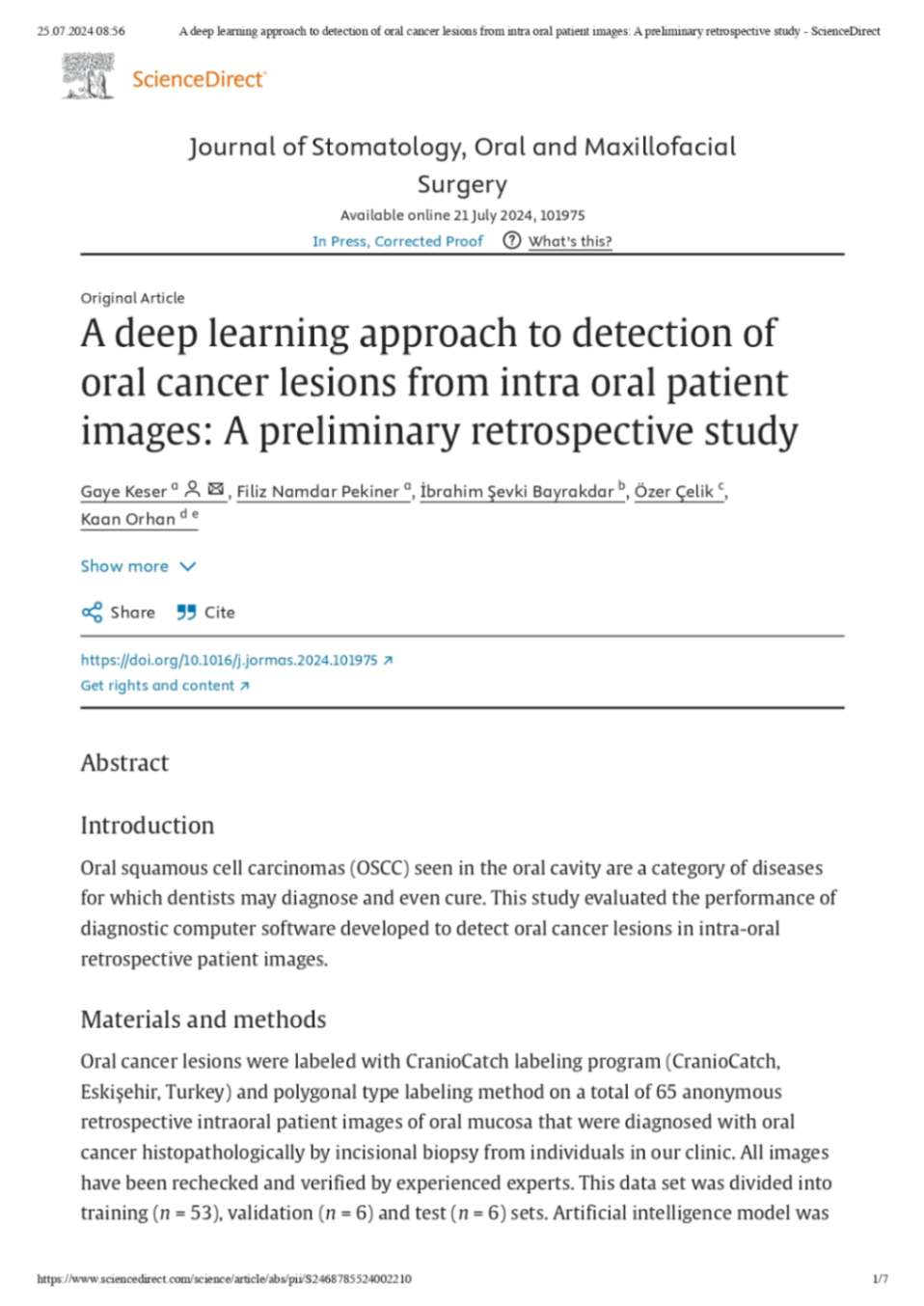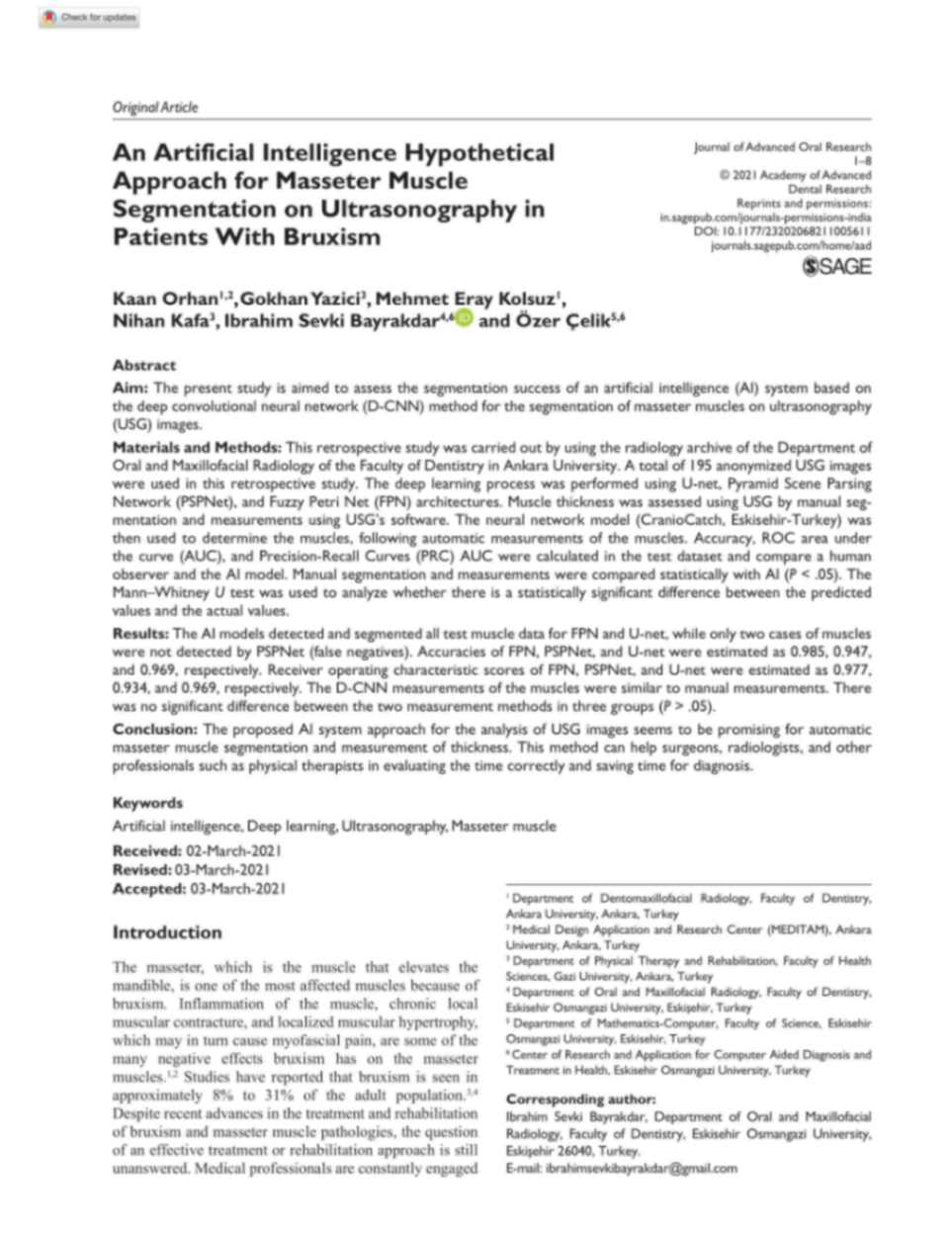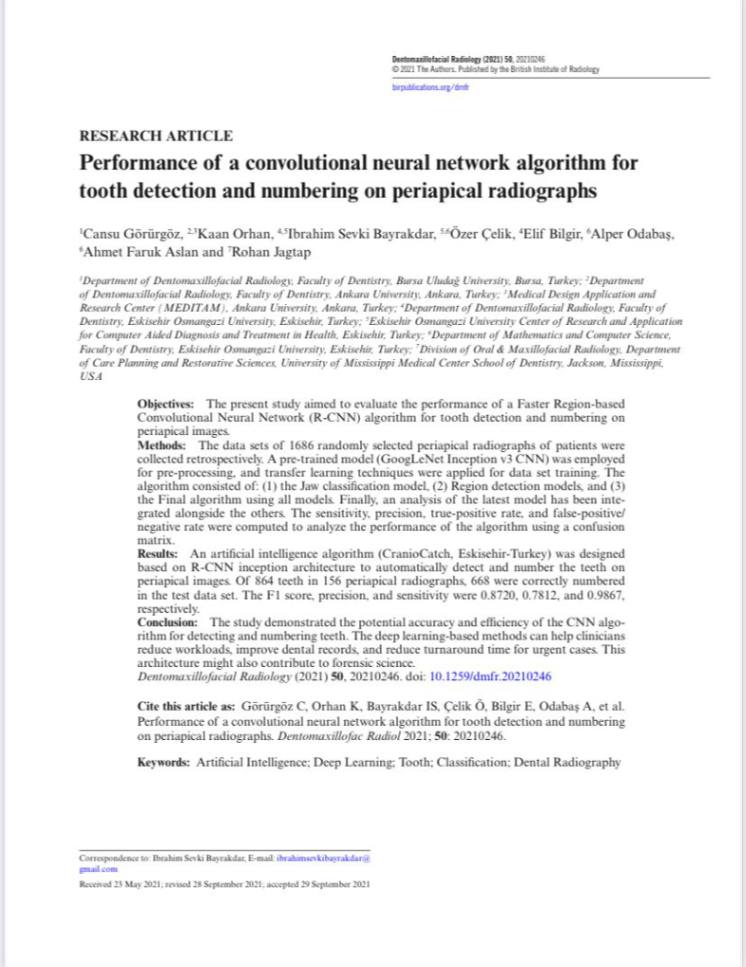Tooth Numbering And Classification On Bitewing Radiographs: An Artificial Intelligence Pilot Study
Summary
This study investigates the use of deep learning techniques for the automated assessment of alveolar bone loss in dental radiographs. Alveolar bone loss is a significant indicator of periodontal disease, and accurate and timely detection is crucial for treatment planning.
Objective
The aim of the study is to evaluate the effectiveness of deep learning models in detecting and assessing alveolar bone loss from dental radiographs. Integrating this technology into dental practice could speed up diagnostic processes and improve accuracy.
Methods
- Data Collection: The study utilized radiographic images from various patients, which were annotated to indicate regions of alveolar bone loss.
- Deep Learning Model: A convolutional neural network (CNN) based deep learning model was developed and trained to identify and assess bone loss areas in the images.
- Training and Testing: The dataset was divided into training and testing sets to evaluate the model's accuracy and generalizability.
- Performance Metrics: The model's performance was measured using accuracy, sensitivity, specificity, and F1 score. Additionally, its predictions were compared with evaluations by human experts.
Findings
- Model Performance:
- The deep learning model demonstrated high accuracy and sensitivity in detecting alveolar bone loss.
- Its performance was comparable to that of experienced dental practitioners, indicating strong potential for clinical application.
- Efficiency and Speed:
- The model provided much faster results compared to manual assessments, offering a significant advantage in clinical settings.
- Automated evaluations could reduce the workload of dental professionals and expedite patient care.
- Clinical Applications:
- This technology could play a vital role in the early diagnosis and treatment planning of periodontal diseases.
- The objective and consistent assessments provided by the model have the potential to improve patient outcomes.
Conclusion
The study concludes that deep learning-based automated assessment models are effective tools for detecting alveolar bone loss in dental radiographs. The integration of this technology into dental practice could enhance diagnostic speed, accuracy, and ultimately patient care.
I Want to Write a Scientific Research Project
CranioCatch is a global leader in dental medical technology that improves oral care in the field of dentistry. With AI-supported clinical, educational, and labeling solutions, we provide significant improvements in the diagnosis and treatment of dental diseases using contemporary approaches in advanced machine learning technology.
CranioCatch serves thousands of patients with dental health issues worldwide every day with its innovative technologies. That’s why we eagerly look forward to meeting our valued dentists who wish to work in the field of 'Scientific Research in Dentistry'.



 Contact Us
Contact Us

